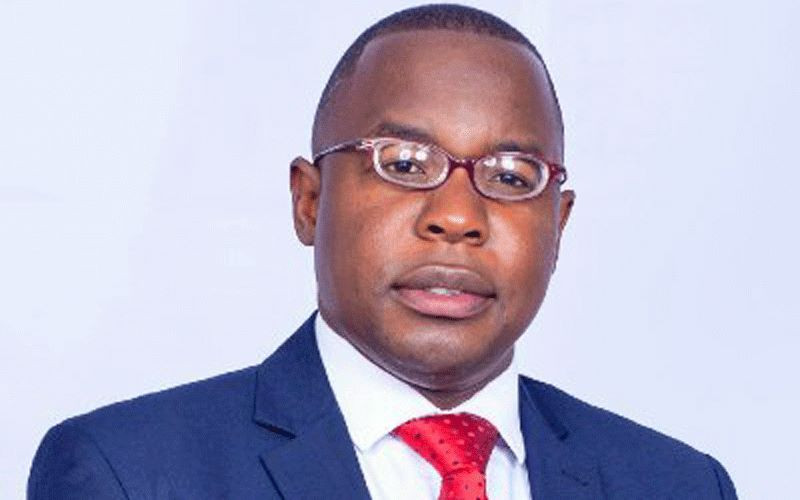
THE government’s decision to take over running of third party insurance will crowd out the private sector and result in bureaucratic inefficiencies around claims processing, which will destroy economic synergies, market watchers have said.
Last week the government announced that it was finalising new regulations to set up a state-controlled third-party motor vehicle insurance scheme that will assume the responsibility of underwriting compulsory vehicle liability insurance, currently handled by private insurers, citing insufficient coverage by the players.
The regulations set to be announced next month will see private insurers relinquishing their role in underwriting third-party motor vehicle insurance, which is compulsory in terms of the Road Traffic Act.
The move is also likely to see massive job cuts, investment losses as well as loss of business scope.
The insurance sector plays a vital role in sustaining the economy by providing financial protection and promoting economic activity, with insurance companies helping individuals and businesses mitigate risk, while allowing them to make investments and take on opportunities that they might otherwise avoid.
This implies a need to ensure that jobs, growth, synergies and partnerships are maintained in the sector.
This will guarantee a strong relationship between the insurance sector and financial advisory, banking sector, which are very much related.
Market watchers said governments’ takeover may mean limited business scope and loss of downstream employment for other related players.
- RBZ’s quasi-fiscal activities under spotlight
- Let’s guard our export sector from collapse
- Private sector against third party insurance takeover
- Reckless driver caged for running over pedestrian
Keep Reading
Economic analyst Victor Bhoroma told Standardbusiness that it was not sustainable for the government to take over third party insurance service provision.
“Mind you, the government used to provide health insurance through PSMAS [Premier Service Medical Aid Society] and it’s one of the classic tales of failure that we have in our State entities in Zimbabwe as well,” Bhoroma said.
“This is a classic tale of crowding out the private sector because when you look at the private sector in Zimbabwe, we have got a lot of insurance players that are there in the country. Some of them could be struggling.
“Some of them are actually doing very well.
“The purpose of the government is to provide public services. Insurance is not a public service.
“Motor insurance is not a public service. So that’s obviously the role should be left to the private sector.
“If there are issues in terms of insurance players failing to provide what is necessary, then the government has to come up with the right regulatory framework.
“They have to come up with the policies, call all the stakeholders and understand the issues that are there and whip the players into line so that in the end motorists benefit because this has to benefit the end users, who are the Zimbabweans and the motorists.”
Bhoroma further stated that the regulator, Insurance and Pensions Commission, will now have a situation where the government is the lawmaker through Parliament.
“So, you cannot have four roles being centred on the government, you know, service provider, customer, regulator and lawmaker.
“It’s not good for corporate governance purposes. And obviously there are a lot of loopholes that are there,” he said.
Given that insurance is a low hanging fruit, Bhoroma said this was likely to breed more corruption with corporate governance aspects being tampered with.
“One of the key issues that obviously would come into play is that the government is already an insurance customer because it has got a fleet of vehicles on its own,” he said.
Investment analyst Enock Rukarwa said while government-run insurance programmes often prioritise affordability, offering premiums at lower rates compared to private insurers, the involvement of government as a sole supplier often creates monopolistic inefficiencies through thinning innovation and crowding out private insures.
“Government-run insurance programmes often prioritise affordability, offering premiums at lower rates compared to private insurers,” Rukarwa said.
“This affordability can make third party insurance accessible to a larger segment of the motoring public, particularly those with lower incomes, thereby reducing overall financial burden.
While the government-run insurance schemes can potentially provide affordability and ease accessibility, the whole operation turns out to be bureaucratic, enabling inefficiencies especially around claims processing and general service delivery.”
Economist Chenaimoyo Mutambasere said running third-party private insurance schemes during a budget deficit and economic crisis may not be advisable.
Mutambasere said the government was exposing the economy to a new operational risk.
This would also mean undertaking the operational cost, which may require diversion of public funds away from social protection during a drought and cholera crisis.
“From this perspective, this move is ill-advised. It is worrisome given the history with NSSA [National Social Security Authority] where the government is still to act on the NSSA, which involved public funds misuse and exposed insurance funds which has meant pensioners have been outdone to date receiving as little US$2,50 a month,” she said.
Mutambasere said the government should leave insurance to experts and consider this as an opportunity to allow new market entrants.
“That said, the current environment is not conducive to new investment due to low confidence,” she said.










